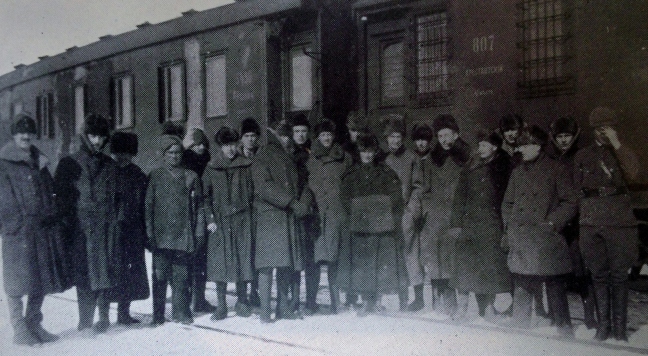On 26th March 1920, Brian Horrocks and the other British PoWs arrived at Irkutsk anticipating that they would be heading east to Vladivostok before the ice on the river melted in April. A few days later, Sgt Frank Illingworth and Lieutenant Edward Stephens joined them after “Illy” had recovered from a bout of dysentery.
While they waited for a connecting train, the commander of the British Military Mission to Siberia, Lieutenant Colonel Charles Wickham, updated the War Secretary in London and sent the following signal: A full train load of medical stores, drugs and clothing has been despatched to Chita area in charge of Colonel Young, Captain O’Driscoll RAMC and Captain Peacock. This is the best consignment of medical stores ever supplied by the Mission. It will be able to satisfy the urgent demand for drugs which is being made by every hospital from Harbin westward into which the sick from the remnants of the Siberian army are crowding in numbers out of all proportion to the space, staff or material available to deal with the situation. (WO 106/1278)




 Brian Horrocks with his fellow prisoners-of-war at Krasnoyarsk in March 1918
Brian Horrocks with his fellow prisoners-of-war at Krasnoyarsk in March 1918